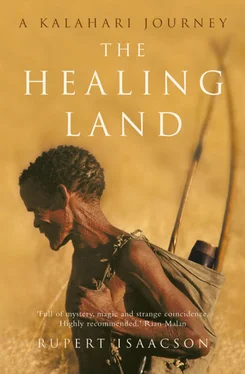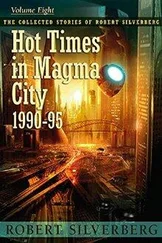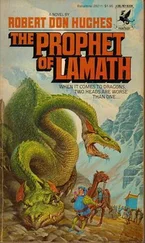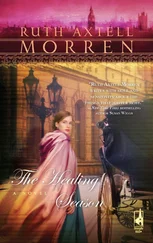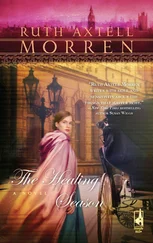But Henry Loxton could match his wife’s legendary feats. Fording the Komaati River on his horse one night (the river lies at the southern end of what is now the Kruger National Park), he was attacked by a large crocodile but, so the story goes, managed to beat it off with his stirrup iron. Arriving at the little town on the other side, he stamped angrily into the bar of its one, small hotel, and demanded to know what the devil they meant by allowing such a dangerous beast to infest the ford. For answer the barman told him, apologetically, that nobody in town had a rifle of sufficient calibre to tackle the croc. The only big gun was owned by a German tailor who was short-sighted, could barely shoot, and was holding the weapon as a debt for unpaid services. Hearing this, Henry Loxton rushed over to the tailor’s house and demanded that he accompany him to the river.
Once at the ford, Henry got straight down to business: ‘I’ll go and stand in the middle, and when the croc comes I want you to shoot it.’
‘But I can’t shoot,’ protested the unfortunate tailor. ‘What if I hit you? What if I miss?’
Henry considered a moment, then took the man by the shoulders and frog-marched him into the water. ‘Stay there,’ he said menacingly: ‘If you move before the croc comes I’ll shoot you. ’ So the tailor waited, trembling, until sure enough, the croc came gliding silently out from the shore. The gun went off, the croc reared up, then collapsed back into the water with an almighty splash, and the tailor sprinted, howling, for the bank. The great reptile was dead. Thanking his reluctant assistant, Henry Loxton gave him back the rifle and continued on his way. Legend has it that, next morning, the tailor’s hair turned white.
Henry and Agathe-Celeste had four sons, all of whom grew up to fight on opposite sides of the Anglo-Boer War (one of them even mustered his own irregular cavalry unit, known as Loxton’s Horse). And it was into this line that Allen, my mother’s father, was born in 1906.
Before the war however, Jesse, one of Henry and Agathe-Celeste’s elder sons, had gone back to the Karoo and founded a small, dusty town which, predictably, he had named Loxton. He married and had a son, Frederick, who, being a chip off the old block, resolved to mark out a private domain for himself, just as his father had done. Frederick set off first for the Eastern Cape, where he married, had children, and tried to settle. But the lure of the wild, empty north where he had been born proved too strong. Soon enough, he abandoned his young family and rode away to the Orange River country, southernmost border of the Kalahari, then the absolute frontier of civilisation.
But even then, in the 1880s, this part of South Africa (still known today as Bushmanland) was fast being tamed, not by whites but by people of mixed white and Khoi blood – the Griqua, Koranna and Baster * – who had trekked away from their white masters some decades earlier. Skilled riders and marksmen, these coloured pioneers had claimed the river’s fertile flood-plain, a corridor of green winding through the vast dryness on either side, making fortresses of the many river islands, from which they raided each other’s camps and enslaved the local Bushmen, occasionally attacking the Dutch and British settlements to the south. By the time Frederick Loxton arrived mission stations had been set up and the old raiding culture was giving way to a more settled farm life. But for a white man with a little money, a good horse and a repeating rifle, there remained a free, frontier possibility to the Orange River country. Ignoring the fact that he already had a family back in the Cape, he met and fell in love with Anna Booysens, the striking daughter of one of the Baster kapteins (leaders). When, some years later, news came of the first wife’s death, Frederick married this woman, and was given a dowry of flood-plain land near the present-day town of Keimoes.
On his death in 1894, Frederick left his farms to his three Baster children and they, when they died, left them to theirs. ‘We have coloured cousins?’ I remembered asking my mother. Indeed we did. But where they were now no one in the family knew. Through the decades that preceded and paved the way for apartheid, the white and the coloured Loxtons had drifted irrevocably apart. Cousins with KhoiSan blood. Almost Bushmen. I pictured them as lean, wild-looking people in a barren landscape of red and brown rock cut through by an immense, muddy river.
As childhood turned to adolescence, it became less comfortable to be caught between cultures, to be part English, part African. The stories, artifacts, white African friends and relatives that constituted my life at home began to clash more and more with the reality of living and going to school in England. I didn’t fit in. Was our family English or African, I would be asked? Neither and both, it seemed.
I was restless in London, and began to long for the open air. We had a great-aunt with a farm in Leicestershire, a horsewoman, who spotted the horse gene in me and taught me to hunt and ride across the Midlands turf on an old thoroughbred that she let me keep there.
Though I made friends with some of the other Pony Club children, I continued to feel like an outsider. Still, it was oddly consoling to think of that great network of ancestors and relatives. Somehow the Kalahari, the dry heart of the sub-continent, seemed central to that inheritance and identity that I was – however unconsciously – trying to find.
So, when I was nineteen, I told my grandfather Robbie over Christmas lunch that I wanted to go to Africa again. The following summer, he sent me a plane ticket.
*Also known as rock rabbits, they are small creatures similar in appearance to the guinea pig. Curiously, their closest known relative is the elephant.
*A corruption of the Shona word muntu , meaning ‘people’.
*A walled city, dating from the thirteenth century, founded by the ancestors of today’s MaShona people.
*The Second Anglo-Boer War (1899–1902) resulted in the British annexation of the whole of South Africa outside the Cape colony. The first war, won by the Boers, was in 1880.
*‘Baster’ means ‘bastard’ literally; a term used for people of mixed race.
It was the African winter: dry, cool, dusty. As the plane touched down in Harare, Zimbabwe, in June 1985, I saw that the grass by the runway was yellow-brown and burnt in places, the trees bare and parched-looking. Walking to the customs building, the early morning air was chilly despite the cloudless blue sky. A faint smell of wood smoke, dust and cow dung was borne in on the bone-dry breeze.
I made my way westward across the grassy Zimbabwe Midlands and into the dry, wooded country of southeastern Botswana, hitchhiking and taking buses and trains. On the third day in the freezing dawn I arrived at Gaborone, Botswana’s dusty, sleepy capital. Cousin Frank Taylor picked me up and drove me out to his place in the red ironstone hills west of town, weaving his beat-up car between teams of donkey-drawn carts made from pick-up trucks sawn in half, driven Ben Hur-style by young BaTswana men. Once out of town, the landscape was barren; red, dry and sandy without a single blade of grass (this was in the height of the terrible droughts that afflicted southern Africa from the 1980s right into the mid ’90s) and the tree branches bare of leaves. I had never seen a landscape so desolate and unforgiving. I sneaked a look at cousin Frank. He matched the landscape: tall, spare, with the capable, practical air of a man used to fixing things himself. Sitting in the passenger seat next to him I felt soft and frivolous and stupid.
I had come to expect that all white Africans lived in big houses surrounded by manicured gardens, where soft-footed black servants produced tea and biscuits punctually at eleven, discreetly rang little bells to call one to lunch, and generally devoted all their energy and ingenuity to surrounding one with understated luxury. Frank Taylor’s house – built with his own hands on a stretch of rocky hillside granted him by the local kgotla * – was austere: one long room like a dusty Viking’s hall, little furniture and no water, unless you drove down to a communal tap in the village below.
Читать дальше
